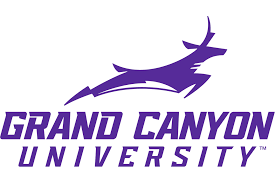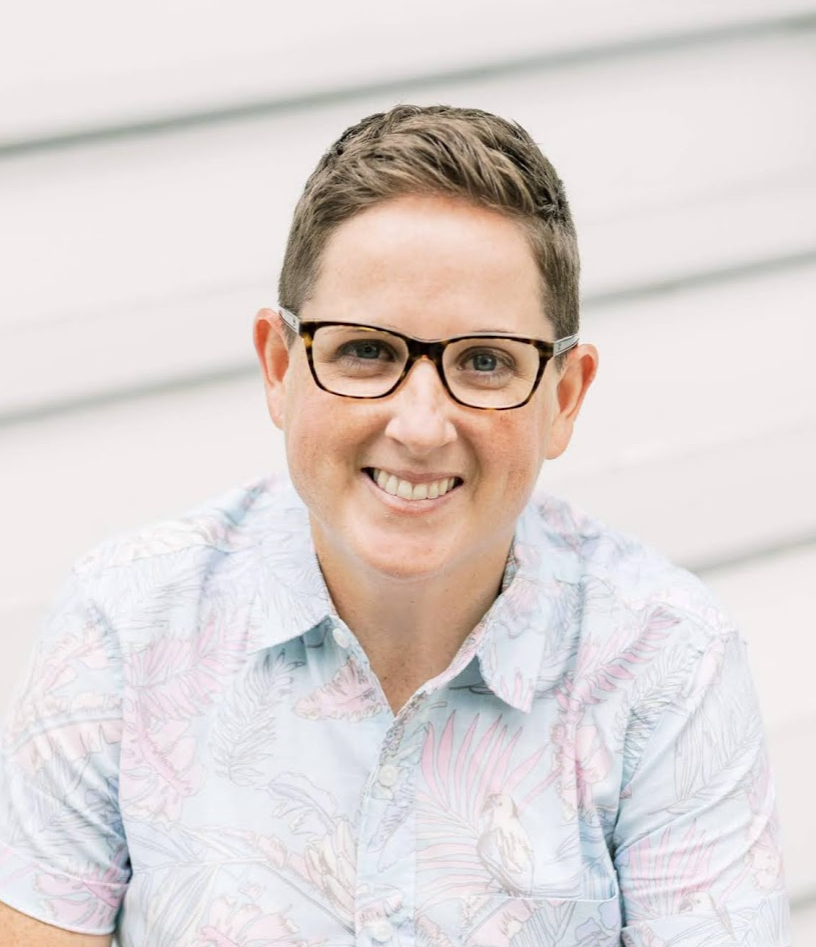Overview
Colorado, a state in the western part of the US, is a good location to study sports psychology which is a branch of psychology that focuses on how our minds affect how we play sports and engage in physical exercise, as well as how these activities can affect our mental health. There are programs leading to bachelor’s, master’s, and doctoral degrees in sports psychology.
Bachelor’s degree programs contain general education courses and fundamental psychology courses in addition to core courses specifically focused on sports psychology. You might finish a research project, fieldwork, and/or an internship in this kind of program. Graduates can work as coaches, sports marketers, or assistants in sports treatment, or they can go on pursuing higher studies.
At the graduate level, your courses are focused on sports psychology topics, and in addition to thorough exams and thesis- or dissertation-writing requirements, they may also involve research and fieldwork. You can work in some of the same fields as people with bachelor’s degrees if you have a graduate degree, but you can also work in professional sports consultancy, sports counseling, or university education teaching. A license or certification may be necessary for some counseling positions.
For more details on the degree options offered at these Colorado-accredited universities, read on.
ADVERTISEMENT
Featured Sports Psychology Degree Programs

- 100% Online Courses
- Affordable Tuition
- Large Alumni Network
Grand Canyon University Online
M.S. in Psychology: Health Psychology
Explore the intersection of biological, social and psychological factors, and their effects on health, wellness and illness.

- Affordable Tuition
- Flexible Online Courses
- HLC Accredited
Grand Canyon University Online
B.S. in Performance and Sports Psychology
Earn you B.S. in Psychology with an Emphasis in Performance and Sports Psychology with Grand Canyon University Online.
What Will I Learn in A Sports Psychology Program?
Degree Timelines
A bachelor’s degree typically requires four years of full-time study, whereas master’s degrees often require two years. The majority of sport psychology PhD programs require four to seven years of full-time study to finish. After receiving a Ph.D. in clinical psychology, some programs are postdoctoral and require additional specialization and research.
Curriculum and Example Courses
You will probably have similar core courses, irrespective of the level of program you enroll in. The list of required core courses in sports psychology is given below, followed by descriptions of four sports psychology courses.
- Health psychology
- Sports counseling
- Anatomy and physiology
- Sports psychology culture
- Motor learning
- Coaching
- Sport biomechanics
- Performance enhancement
Psychology of Physical Activity and Sports
You will learn how psychological theory and research can be applied to our understanding of sports and physical activity in this introductory course. You may discover more about how the mind and outside elements that affect sports interact. Competition, motivation, and group dynamics are all required topics.
Social Psychology in Sports
This course examines the functions of group psychology and functioning in sports. You can look at how social and cultural factors affect physical exercise participation.
Psychological Perspectives on Performance
Learn how psychological traits like aggression can affect a person’s physical performance in this course. You look into ways to improve performance by comprehending and considering psychological elements.
Psychology of Injury
This course examines how psychological factors influence injuries as well as how injuries influence mental processes. This course may also cover some basic psychological counseling techniques related to the treatment of injured patients, depending on the program.
What Are The Standard Entrance Requirements to Enroll?
Bachelor’s degrees in sports psychology are rare. Those that do exist typically fall within a psychology degree’s specialization. Applications for these undergraduate programs often have fewer criteria. However, committees for graduate admissions frequently look for references and expertise in athletics, coaching, psychology research, or other similar fields, as well as a minimum GPA of 3.0 and higher-than-average GRE scores.
ADVERTISEMENT
Featured Sports Psychology Degree Programs

- 100% Online Courses
- Affordable Tuition
- Large Alumni Network
Grand Canyon University Online
M.S. in Psychology: Health Psychology
Explore the intersection of biological, social and psychological factors, and their effects on health, wellness and illness.

- Affordable Tuition
- Flexible Online Courses
- HLC Accredited
Grand Canyon University Online
B.S. in Performance and Sports Psychology
Earn you B.S. in Psychology with an Emphasis in Performance and Sports Psychology with Grand Canyon University Online.
Colorado Bachelors Degrees in Sports Psychology
A bachelor’s degree is necessary to become a sports psychologist. The program offered at Adams State University can help you establish the base knowledge.
Adams State University

Bachelor of Arts in Sport Psychology
Delivery Method: On-Campus
Credits Required: 120 Credit Hours
The course material in this program will be centered on how the brain affects human performance and how to use psychological strategies at the level of the individual athlete. Students will learn how to create group dynamics, impact sport and exercise environments, promote psychological development and growth in athletes, and increase performance. Exercise Physiology, Kinesiology, and Human Motor Development are a few examples of courses. You’ll be ready for graduate school or careers in clinical, educational, or research settings once you graduate. A 3.0 undergraduate cumulative GPA is required in the final 60 hours of the undergraduate degree program. If a student does not meet the GPA requirement, additional information may be requested. Official high school transcripts are required for admission, while SAT and/or ACT test scores are optional.
Accreditation
Colorado Masters Degree in Sports Psychology
Pursuing a master’s degrees in Sports Psychology is an excellent choice for individuals looking to expand their knowledge, skills, and interests in the field of sports psychology. This is also a requirement for those looking to pursue a doctoral degree later on. Here’s a list of options,
University of Denver

Master of Arts in Sport & Performance Psychology
Delivery Method: On-Campus
Credits Required: 72 Credit Hours
The Master of Arts in Sport and Performance Psychology (MASPP) program at the University of Denver’s Graduate School of Professional Psychology is a pioneer in innovative training, applied research, and practice. The program is intended to train individuals in sports, performing arts, health and fitness, and mental health who want to improve the performance and lives of those with whom they work. It focuses on the psychological factors that influence human performance while implementing assessment and intervention strategies to improve an individual’s performance and personal development. Unlike other programs that add it on top of their generalized curriculum, the curriculum is specifically designed for sport and performance psychology. Theoretical Aspects of Sport and Performance Psychology, Theories of Performance Excellence, and Sport and Performance Psychology Interventions are some examples of courses in this program. All graduate applicants must hold an earned bachelor’s degree from a regionally accredited college or university or the recognized equivalent from an overseas institution, and the minimum undergraduate GPA for entrance consideration for this program is a cumulative 2.5 on a 4.0 scale.
Accreditation
Adams State University

Bachelor of Arts in Sport Psychology
Delivery Method: On-Campus
Credits Required: 120 Credit Hours
The course material in this program will be centered on how the brain affects human performance and how to use psychological strategies at the level of the individual athlete. Students will learn how to create group dynamics, impact sport and exercise environments, promote psychological development and growth in athletes, and increase performance. Exercise Physiology, Kinesiology, and Human Motor Development are a few examples of courses. You’ll be ready for graduate school or careers in clinical, educational, or research settings once you graduate. A 3.0 undergraduate cumulative GPA is required in the final 60 hours of the undergraduate degree program. If a student does not meet the GPA requirement, additional information may be requested. Official high school transcripts are required for admission, while SAT and/or ACT test scores are optional.
Master of Science in Kinesiology with An Emphasis in Applied Sport Psychology
Delivery Method: Online
Credits Required: 36 Credit Hours
This program provides students with the information and abilities required to work as professionals in sport psychology through a wide variety of courses and real-world experiences. Since all courses are offered online, students with full-time jobs or those who cannot relocate can take advantage of greater flexibility and convenience. The curriculum can be finished in two years, including all coursework and internships. Methods of Coaching, Sports Physiology, Sport Psychology, Diversity & Equity in Sport, Mental Strength & Conditioning, and Ethics in Applied Sport Psychology are some examples of courses. This degree allows students to work towards attaining the Certified Mental Performance Consultant (CMPC) status with the Association for Applied Sport Psychology, which is the highest level of certification in the field. A letter of intent, current resume, two (2) online letter of recommendation forms and official transcripts from previously attended institutions are required for admission.
Accreditation
Colorado Doctoral Programs in Sports Psychology
Receiving a PhD or PsyD is necessary to gain the level of education and experience needed to pass the board exam and become a licensed Sports Psychologist. Here are options that aspiring professionals should seriously consider.
University of Colorado Boulder

PhD in Psychology and Neuroscience
The Department of Psychology and Neuroscience at the University of Colorado Boulder offers a comprehensive Ph.D. program that offers concentrations in Behavioral neuroscience, Behavioral, Psychiatric, and Statistical Genetics, Developmental Psychology, Cognitive Neuroscience, and Social Psychology. Of these subplans, those interested in Sports Psychology may benefit the most from Behavioral Neuroscience, as this option covers much of what is needed to become a great sports psychologist. The department also engages in various interdisciplinary degree and certificate programs where students can expect to delve into specialized areas such as the neural basis of behavior, clinical assessments and treatments, and cognitive processes and brain functions. Additionally, the program offers tuition waivers and stipends, typically funded through teaching or research assistantships, for the first five years, covering most of the educational expenses and health insurance costs. This PhD program is ideal for students seeking a rigorous academic environment to pursue advanced research in psychology and neuroscience.
Accreditation
University of Northern Colorado

PhD in Social Psychology of Sport and Physical Activity
The PhD program in Sporst and Exercise Science: Social Psychology of Sport and Physical Activity at the University of Northern Colorado is unique and highly specialized in that it is a unique and highly specialized program led by renowned researchers. It’s focus is on the study of social influence on sports and physical activity, examining in-depth the impact of various social factors such as family, peers, and community on individual motivation and experiences. The program is selective and requires 64-67 credit hours for students to graduate. Those with research interests will be ecstatic to know that this is the University of Colorado’s specialty, though the program itself is most suitable for professionals with real-world experience in coaching, training, and physial education. The curriculum includes courses in Sport and Higher Education, Exercise and Sports Psychology, Advanced Sociological Kinesiology, Motivation, Social Psychology and Group Dynamics, and Sport Pedagogy. Students will gain skills in research design, data gathering, statistical analysis, academic writing, and college-level teaching. Graduates of this program will be well-equipped for university faculty positions, nonprofit or government research, and roles in public policy, thanks to their strong research skills, teaching credentials, and interdisciplinary approach. This program is ideal for those who wish to explore the intersection of social psychology and physical activity, contributing to important public policies and community health initiatives.
Accreditation:
Career & Salary Opportunities in Sports Psychology in Colorado
Colorado is a great place for students and young professionals looking for a degree or a career in sports, health, and wellness. Colorado has it all: a number of high-quality colleges and universities throughout the state, a growing economy, and one of the most active populations in the country. The state is an excellent place to begin your education or a career in sports.
Although certain employment in the sport psychology field require a doctoral degree, having a master’s degree may open the door to coaching positions, supporting roles for licensed psychologists, or the management of leisure sports and athletics. Jobs in the subject of sport psychology include some of the following:
Coach
The advantage that coaches with a background in sport psychology have over coaches without it is astounding. A leader who is teaching them both the physical and mental abilities can be of great help to athletes. There is no doubt that the demand for coaches with advanced sport psychology degrees is rising swiftly as young people’s need for mental health knowledge is on the rise globally.
Professor of Sport Psychology
For this dynamic subject, a Ph.D. or really remarkable professional experience is necessary. A career in academia is highly fulfilling for many teachers. It can be extremely satisfying for someone to pass on their passion to the next generation. Professors will probably take part in research, giving them a great chance to advance our understanding of sport psychology.
Sport Rehabilitation Therapist
The use of sport psychology to aid in athlete recovery is growing in popularity. There can be specific certification and education requirements depending on your role. A certain degree and passing the licensing exams are requirements for becoming a certified physical therapist. However, a bachelor’s degree may be all that is necessary to work as an assistant or to join a team of sport rehabilitation therapists. More advanced degrees will be required for higher positions.
Other possible careers in this field include:
- Health program coordinator
- Private practice clinical sport psychologist
- Sport psychologist for a club, college, Olympic, or professional team
- Sport rehabilitation specialist
The average yearly pay for sports psychologists in Colorado is $108,587, according to sources, and senior-level sports psychologists often make over $130,000 per year. Depending on your market reputation, clientele, and level of experience, private sector earnings may even be significantly higher.
As mentioned, competitive sports at both the amateur and professional levels are highly popular in Colorado, and the need for a skilled sports psychologist to help athletes psychologically and physically prepare for competitions is often favorable. The BLS predicts that by 2031, there will be a positive 6% shift in the employment of psychologists overall.

